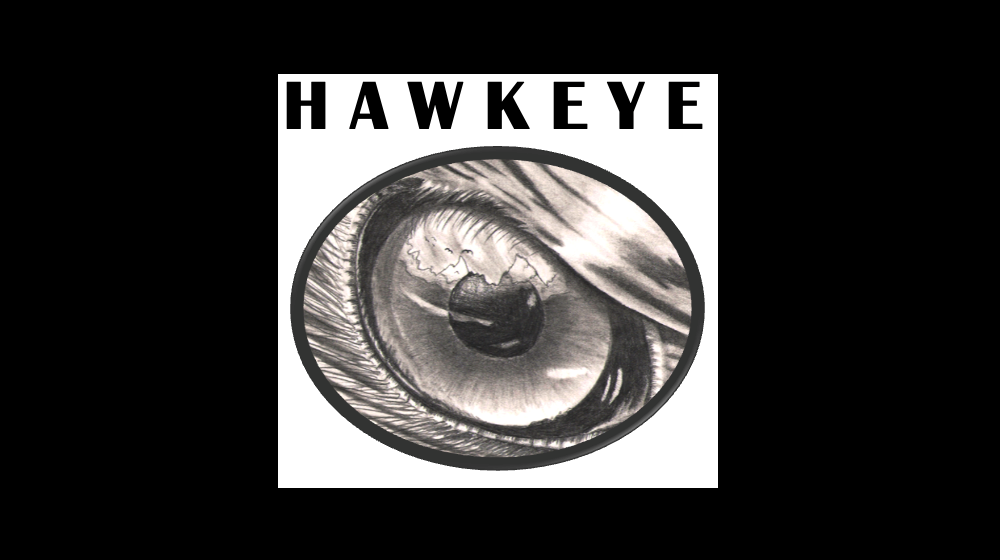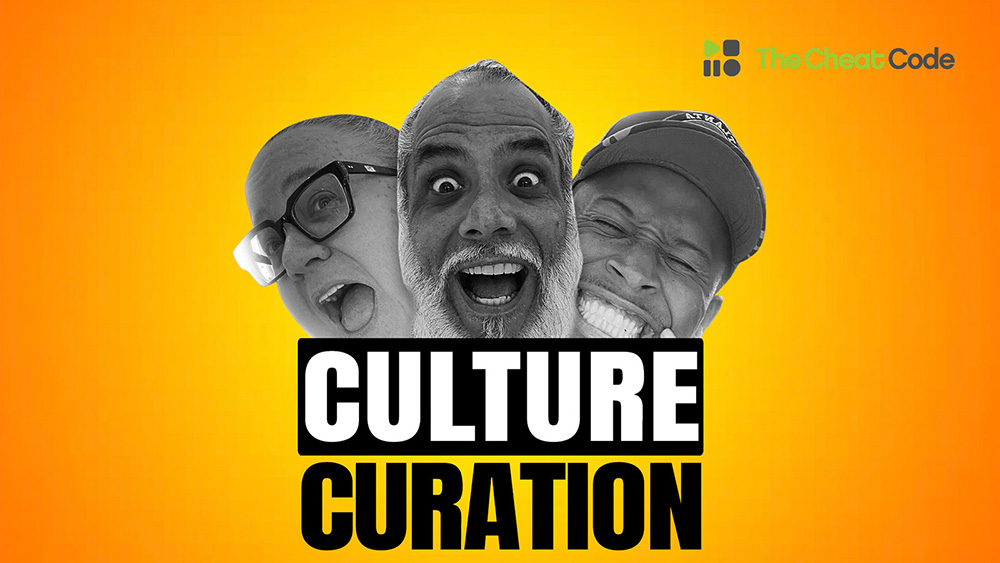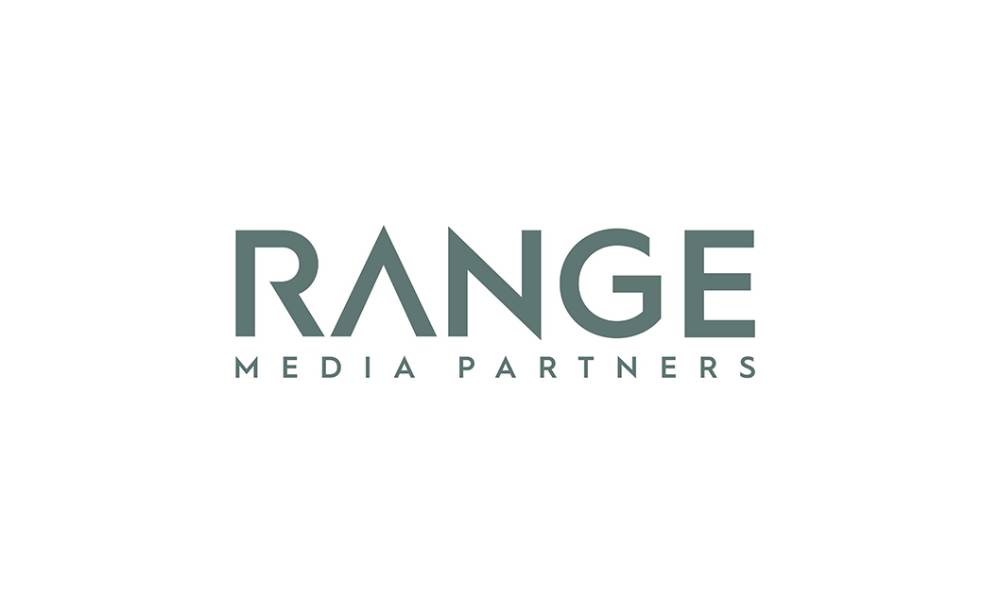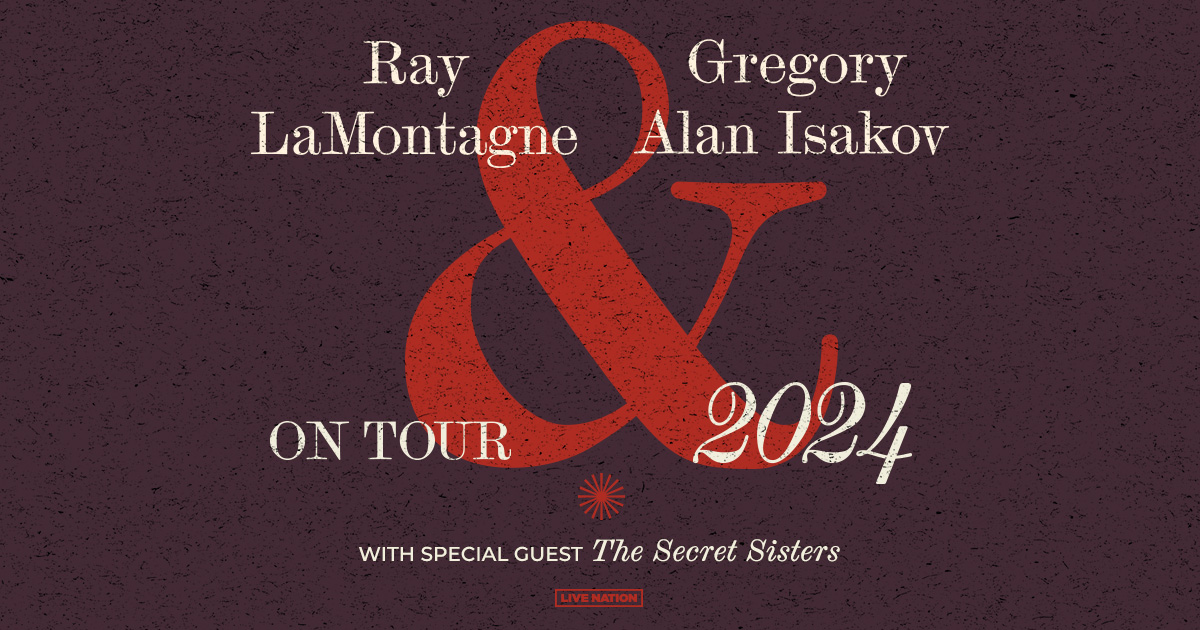
LOS ANGELES (The Music Business Registry) — In reflecting on the world of A&R in 2004, there were some very profound and dramatic changes that altered the very nature of not only A&R, but of the Music Business itself. 2004 will always be remembered as the year the 'Big Five' became the 'Big Four' and don't be surprised if we're telling you about the 'Big Three' at this time next year! Besides the Sony/BMG merger, 2004 will also be remembered as the year labels aggressively utilized video games as a marketing vehicle for the launching of many of their artists. 2004 will also be remembered as the year when the public finally said "No Thanks" to the Concert Business in a very loud and clear way. The summer touring season especially, was taught some very painful and costly lessons regarding exactly how much the public is willing to pay to see an act and what they are no longer willing to pay for! As a result, Clear Channel has removed Service Fees from its ticket prices and drastically reduced parking prices at many of its venues. The Industry also learned some valuable and long overdue lessons on the volume of acts the marketplace is able to absorb as well as the actual live-viability of some of those acts.
Of course, the most profound impact on the world of A&R as well as many other areas of the business was the closure of four major labels: DreamWorks, Arista, Elektra and MCA (although MCA was reborn with far less staff as Geffen). These closures accounted for the loss of over 600 jobs (35 in A&R Departments). Speaking of A&R jobs, last year at this time, we reported that 105 A&R people had lost their jobs.
In 2004,we're sorry to report that number has increased to 121 A&R professionals who left their jobs for various reasons. Unfortunately, only 13 of the 121 have managed to find other A&R jobs so far.
The 13 are Jeff Fenster who joined Arista after leaving Island, Jeff Blue who joined RCA after leaving Interscope, Kenny Salcido who joined Epic after leaving DreamWorks, Keith Naftaly who joined The Sony Label Group after leaving DreamWorks, Naim Ali who joined Warner Bros. after leaving MCA, Dino Delvaille who joined Sony Urban after leaving Universal, Teresa Labarbera-Whites who joined Jive after leaving Columbia, Mark Pitts who joined Jive, Victor Murgatroyd who joined RCA/J and Josh Sarubin & Joey Arbagy who joined Island all after BMG closed Arista. Jeff Sosnow & Luke Wood both joined Interscope's A&R Dept. after the sale of DreamWorks to Universal. What it unique here is that the ENTIRE A&R staff of DreamWorks went to Interscope in January and Sosnow and Wood are the only two that remain. And from the A&R world to the Publishing world, Nanci Walker joined Universal Music Publishing after leaving Island/Def Jam.
Last year at this time, we also reported the hiring of 85 new A&R people and in 2004 that number dropped dramatically to only 39 new A&R hires in LA, New York, Nashville, Atlanta, Vancouver, Toronto and London – a radical 51% decline from previous years.
Fortunately, certain A&R Executives were blessed with the opportunity to leave one A&R job with an offer of another A&R job while they were still employed. This have become an increasingly difficult achievement in this current climate of label closures, downsizing and having to compete with dozens of unemployed yet qualified and experienced A&R executives for every A&R job that DOES becomes available. Those fortunate few include Lenny Santiago who joined Virgin from Roc-a-fella, Kevin Williamson who joined Maverick from Atlantic, Joe McEwen who joined Verve from RCA, Martin Dodd who joined Sony Music Europe from Jive, and Leigh Lust, Jay Brown and Sam Taylor who all joined Atlantic after Elektra closed its doors earlier this year. Just for the record, they were the only three members of Elektra's A&R Department to make the move to Atlantic, although by the time you're reading this, Sam Taylor will have left Atlantic to join Merlin Bobb, his old boss at Elektra, at Bobb's new label venture Roun' Table (UNI).
Others who found new opportunities elsewhere include Sylvia Rhone who joined Universal/Motown when Elektra closed, Julie Greenwald who joined Atlantic as President from Island. Kevin Liles, Def Jam's former President who is now an executive in the Warner Music empire, Antonio L.A. Reid (former Arista President who is now CEO of Island/Def Jam), Lyor Cohen (Island/Def Jam's former President is now CEO of the Warner Music Group) and Danny Strick (formerly President of BMG Music Publishing) who joined Maverick as an A&R Executive, but left Maverick earlier this year, in a return to Music Publishing, joined Sony/ATV Music Publishing as its new President.
Also making the transition from Publishing to A&R is Steve Sasse, who has just exited from EMI Music Publishing to become the Head of A&R for Atlantic Records-UK under new MD Max Lousada. Also exiting EMI Music Publishing is Ed Jefferson who joins Polydor-UK A&R Dept.
As we've said before, the names in this business never change, just the addresses underneath them
Other executives in 2004 who are now "doing it for themselves" include Ron Shapiro (former President of Atlantic), Berko (former A&R executive at Maverick) and Brad Aarons (Sony Int'l) who have all chosen to open their own business in Artist Management (can you blame them?). Former Nettwerk A&R Executive Darrin Harmon joined his old boss, Dave Holmes, in a new label/management venture called DC Music. Greg Glover (former Warner Bros. A&R exec) opened his own label in Seattle, Arena Rock Recording. Also opening a label is Bradley Kaplan (former Warner Bros. exec) who formed E Street Records earlier this year. Also forming a new label/publishing venture is former Epic A&R Executive, Pete Ganbarg, who formed Puretone Music. Others, such as John Kirkpatrick (VP A&R Elektra), choose to leave the A&R field altogether by joining Paramount Studios Music Department.
Looking back over the last few months recent A&R Departures include longtime Def Jam A&R Executive Tina Davis, Kate Hyman (V2), Andy Goldmark (Jive), James Foster-Levy (Warner Bros.), Rose Noone (Epic) and Tony Austin (who came to and went from Def Jam within the year), Eric Nicks, who exited Def Jam earlier this year to join Sony Urban, has left SONY as of 3 weeks ago. Don Muhammad joined Universal/Motown after leaving MCA earlier this year has also just left Universal/Motown as has Robert Watson.
New labels were not as plentiful as in years past. Of note, EMI Music Publishing Executive Evan Lamberg formed E.V.L.A., a new label via Atlantic for EMI-signed writers. Simon Fuller (American Idol) formed 19 Recordings in the US and UK, Artist Manager Dave Benveniste has a new label venture – Velvet Hammer Music via Sony/BMG and Artist Manager Joe Simpson (Manager/Father of Ashley & Jessica Simpson) has formed JT via Geffen, Producer Kanye West has formed Good Music via Sony/BMG in Los Angeles. Shaquille O'Neal has come back into the Music Business via Deja 34 out of Atlanta.
In looking back over 2004, we're reminded of the many conversations we had with various Music Business Professionals on both sides of the Atlantic concerning the current state of today's Music Industry. Without exception, there seems to be a very sobering sense that the Record Business we have known for the last 25 years is now gone. This is extremely troubling for many, sad for some and terribly exciting for others. I see these times as an incredible opportunity for a total re-invention not just for Record Label A&R Depts., but for the entire spectrum of the Music Industry. If you as an Artist, Band, Agent, Manager or any other Music Business professional cannot see that the old paradigm of artist development (the actual long-term process of building a career from the ground up) has been completely re-invented over the last few years, then you need to get out of this business. The old methods of doing things no longer apply. This may sound obvious to most of you, but you wouldn't believe how many fairly well known Music Business Professionals within the Industry today that we speak with still believe that the only way an act can have a viable career today is to get that act signed to a major label.
What's so sad is that these people who believe this (and there are many) can't even see that the very system they feel can & will accomplish this for their artist – no longer even exists! We've said this before, but it bears repeating – though no one will actually come out and say it (truth is, they may not even be consciously aware of it) — Major Labels today, with very rare exception, are no longer willing to be in the business they have built over the last forty years. The train of thought today is that the 'old' process of signing, recording and developing talent takes far too long and is way too costly to achieve the results they desire in the time they have allotted. As a consequence, whether intended or not, (and this is the part many simply can not see) is the Major Labels are now in the Promotion and Marketing business, but of course, only for those experienced artists who have already been developed that they feel can be turned into Multi-Platinum sellers. Well, that would be nice, but that just isn't the world we live in anymore. Of course, there will always be Platinum sellers in the future, but far fewer of them. Today, there is simply too much choice available.
It's fascinating to observe some of the most influential Music Publications out there today such as pitchforkmedia.com and Blender to name two, have hardly any mainstream artists in their Top 50 of 2004. Today, it's all about choices. The future of this business will be thousands of niche artists selling fewer records much like cable television, which has a fraction of the audience, but is profitable! And this is the most profound difference from the past in terms of A&R signings and looking at what can and will work in the Marketplace.
Under the old paradigm, the public (the majority of the time) only wanted (with few exceptions) what the Major Labels signed and sold to them (of course, that may have something to do with what was available). Today, choices of music being vastly wider, a far more diverse artist selection available to us, not to mention the various new formats provides an almost infinite selection for today's listeners and consumers. And, as most of us have known for years, the market is far far broader (yes, people between the ages of 30-50 WILL BUY MUSIC when presented with Artists that they can connect with) than the Major Labels ever cared to acknowledge. How else could Ray Charles sell two million copies of a CD via a coffee chain or James Taylor sell over one million Christmas CD's via Hallmark without his CD even being available at retail? If either of those artists were at a Major Label, (James Taylor was with Columbia/SONY for 27 years up until last year) they most likely would not have sold more than 200,000 – 300,000 copies- tops!
These two examples provide an insightful illustration why several of the Major Labels are struggling today for their very survival. They truly can't see what their customers want. But, in much deeper sense, they have no desire to get to know what their customers want either.
Don't get me wrong, there are several wonderful executives who work for the Major Labels, it's just that the corporate culture at the top of most Major Labels is so profoundly out of touch with the times we live in, they cannot see their own part in the problems they face. The building of careers is a luxury of time to which they no longer choose to contribute. They really would like to THINK & BELIEVE they do, but the reality is the just the opposite.
Sony/BMG will let go of approximately 2,200 of their employees over the next five months, about 12% of their workforce and with 45% to 50% of that number coming from the U.S. operations. At this point, no one knows how many labels between the two giants will be closed or how many artists will be dropped by both companies as the two giants continue to streamline their worldwide operations into one. What's so sad about this merger in particular is that, unlike some mergers, where the intention in coming together is a vision of creating something greater, better and something that neither company could achieve alone, this merger seems to be a grasp at mere survival. Other Major Labels have also streamlined their operations. The Warner Music Group let go of over 600 employees during the last two years and just recently dropped 93 of the 195 artists from their rosters and closed Elektra, a once thriving and core label within the Warner system. Last year, EMI announced that it would drop 20% of its Artist Roster over the next 12 months. Does this sound like an Industry that's interested or even capable in building or developing anything? It's like a struggling marriage where neither party is open, willing or even capable of really seeing what the issues are that continue to keep them stuck! So they just keep making decisions over and over that allow them to avoid examining what's essential to their own survival!
'The Revolution has begun!' The opportunities today are vast and limitless for those artists, bands, managers, and other individuals and companies who truly understand and embrace what is actually occurring, who can step back and see the decaying mechanism that many are still struggling to maintain for what it is – not only a crumbling business model, but an entire way of viewing the world in which we used to live, but no longer do! The personal, business and artistic successes we are seeing today are from those individuals who can peer through this fog of delusion and see the business as it actually is; not as they want it to be or hope it will become, but how it actually is! Those individuals are moving freely and creatively interacting with our new social order while others, including some politicians (and apparently a lot of voters), are still clinging to a world or a way of thinking and being that no longer exists. It's only a faint echo acting like some spirit lingering that does not know its dead. Enough of us have had enough therapy to know that some of our biggest emotional upsets in life are created by the difference between a world that we make believe exists and the world that truly does exist.
Forward-thinking Artist Managers, Agents, Venues, Indie Labels and the artists themselves are the ones who have become (and truthfully have been for some time) responsible for building the next generation of career-artists. There are many current examples that illustrate this. Look at what Ken Levitan (Vector Management) has so tastefully achieved with the launching of Damien Rice's career. Or how Coran Capsahw (Red Light Management) helped build and develop Dave Matthews' career before RCA signed him, by never losing sight of what the 2 most fundamental elements are in this business – Artist & Audience. Or Martin Kirkup & Steve Jensen (Direct Management) who have launched Jamie Cullum, a young "piano man" who had put out his own CD prior to his debut. The choices they made along the way in Cullums career, from showcasing him to the tastemakers at SXSW last year to not over-hypeing him illustrate an entirely different way of thinking about the development of Artist and the building of their careers. Careers are not supposed to be events that have huge a build-up and then are over like The Super Bowl. As we all know, the best careers (The Beatles, Led Zeppelin, Elton John, Neil Young, U2) are long journeys that have been built on solid and viable foundations that can (and do) sustain a wide array of paths and experiences. Each of these artists was able to build extremely solid and viable foundations without a Major Label and in most cases, had no mainstream radio airplay at all. What these artists (and their managers) do have in common (regardless of genre) was an entirely new way of thinking and approaching the marketplace with regard to the development of their careers. They all utilized new and non-traditional methods that did not have the luxury of an enormous marketing push behind it to create awareness. Most were lucky at the start to get Public Radio exposure and critical acclaim. But today, with so many more marketing and exposure options available to artists (iPods, Internet radio, websites, non-trad itional retail), the artists who develop and build career's for themselves won't necessarily be household names in the first few years, but they will have a built a very solid base of fans that actually want their music and will attend their live performances. These artists will have built their followings over a long period of time, not through hype and over-exposure on MTV, VH-1 or other media outlets that in so many cases actually damage careers instead of enhancing them. More than ever, today's youth culture is looking for something real, something it can feel a genuine connection with, not something it's oversold on!
This is the tragedy of The Major Labels (tragedy in the classic definition is defined as "the fall from greatness through an unseen flaw in ones character). They keep looking for the formula that will give them the huge Multi-Platinum sellers that they once enjoyed. Only problem is, the system today doesn't allow these types of massive sellers like it did in the past. Today, we have far too many choices. And that's their tragic flaw. Major labels do not see that the harder and louder they continue to market their acts, the more the audience they're trying to reach doesn't seem to hear them or care for that matter. Doubt me? Just ask any 13-18 year old today and they'll tell you. Or ask any 35-50 year old why they don't buy CD's anymore and they'll tell you "They don't put out any artists that I can connect with" Let's be real here, Norah Jones enormous breakthrough and continued success wasn't a fluke, but rather a very strong indicator that the so-called "target demographic" the Major Labels think is "the only one that matters" is completely out of touch with the times we live in. And for the record, Norah's career is another example of a recent career that was built entirely from this new paradigm of Artist Development – It is this particular phenomenon that I believe will alter the type of artists, regardless of style, that will emerge and be able to build viable careers for themselves in the coming years. Will these new Artist's careers look like what came before? Not a chance! This will be the most difficult lesson for us as an industry to truly get. Letting go of what we've always held as the definition of success (Out-of The Box Top-10 radio hits, videos in high rotation on MTV, VH-1, BET, product endorsements for anything and everything, appearing in TV commercials, transitioning into motion pictures all within the first 12-18 months. Today, for those in the know, these things are no longer seen as a path to career longevity. These are all things we have seen over and over during the last 5 years that have hurt careers when they occur too quickly or without direction. Too many of today's 'hit' artists seem so afraid that this moment "right now" is their ONLY chance in life to have a career, that they simply overwhelm the marketplace with every conceivable form of over-exposure, and often like the Major Labels, don't even see their own part in any of the career aftermath. Beyonce, Queen Latifah and even the wonderful actor Jude Law – who has appeared in six films over the last five months — are three examples that come to mind in different arenas of entertainment. Heavy Rotation Out-of-The Box Radio Hits, Television ads, forgettable movies, videos on MTV, VH-1, magazine covers (Beyonce's 25 non-music magazine covers over the last 18 months were enough to overwhelm and alienate even the most devoted fan), along with countless product endorsements, award show appearances, movie premiers, television interviews, even boxes of hair color that stare back at you with their image from every grocery shelf in America. These acts are not out of our cultural conscienceness for more than an hour. How can you ever look forward to anything when it's never gone long enough to miss it? It's like meeting someone for the first time and feeling you have to tell them every single thing about yourself on the first date. Where's the mystery? What's left to discover? What's left left to build? And yet this has become, especially in the Music Business of the last 12 years, the "accepted modus operendi". Is it any wonder that we don't have many artists who've built successful careers for themselves over the last 10-15 years?
The new breed of artists and managers (and yes, there are a few who do think long-term) emerging today do not appear to see their clients' careers with this same unhealthy compulsion. They have a solid grasp of who and what they are and have been able to map out a career path that is consistent with that vision. This is what will contribute to building careers, rather than destroying them.
A recent development in the Industry that we would be remiss in not mentioning is the recent trend of "upstreaming". This is where an Independent Label develops an act from the ground up, and at a certain sales level, the act goes upstream to the Major Label system. The catch is, of course, that the smaller label will have to give up their acts to the major if the acts become successful. The great flaw in this scenario is that the major labels have traditionally thought that any act doing 100-250K on an independent label should be able to do at least three times that within a Major Label System. As we've seen over the last few years, 'it just ain't so!' Most acts do not go from 150K to 500K in the course of 1 album. And there is nothing wrong with that.
An act's evolution (artistic & commercial development) is an organic process and a long one. We don't expect children to walk in their first six months nor should we. Often, the problem with the Major Labels' expectations are the unrealistic sales goals set for their acts simply because the act is now in a 'Major' system. So often I've seen labels set their spending based on a totally unrealistic sales expectations. All too often, a label declares that its sales goals have not been met and drops the act. Is it any wonder that our industry has produced fewer and fewer career artists over the last fifteen years? That is also why all of the Major Label Artist Rosters will continue to get smaller and smaller. Like we said, they no longer have the desire to be in the career-building, artist development business and, as such, no longer need the enormous infrastructures they once had when they needed to support three hundred artists on a roster. With the labels continuing to operate in this manner, you have to wonder where will the great catalogues of the future come from? Well, it won't be from the major labels, that's for certain! They have no interest in this process, wanting the natural forces of the marketplace to develop talent for them. It is a truly fascinating phenomenon to watch the major labels put time, money, energy and focus into developing up and coming independent labels rather than develop artists themselves, something they did so well at one time, when they faith in the Artists they signed and the process of developing careers for them!
The most fascinating aspect of the process to us today is how many artists and bands today WANT NOTHING WHATSOEVER TO DO WITH MAJOR LABELS AT ALL! A lot of Artists today, have seen too many acts over the last 10 years break up, implode or simply get lost in a system that they truly had no business being in the first place.
If Major Labels are to survive in the future they are going to have to completely re-invent themselves. They are going to have to start seeing their business as it truly is today – not how they would "like it to be" or "how it was" but how it actually is. Like Werner Erhart so brilliantly said "The Truth will set you free, but first it will really piss you off!"
Part 2:
There wasn't a lot of activity within the A&R Community over these past two months, although for some reason NY had the majority of it. Among the biggest moves was Steve Greenberg, who exited his own label, S-Curve, to become the President of the new post-merger Columbia Records. Also on the move is Jay Brown, who after a five-year run at Elektra in Los Angeles as Sr. VP A&R-Urban Music, moves East at the request of Def Jam President Shawn "Jay-Z" Carter to become EVP A&R. Joining Jay at Def Jam's newly expanded A&R Department are Jimmel "Guru" Keaton & Tyran "Tyty" Smith. We're also happy to report that Danny Wimmer has joined Atlantic's A&R Department. On the West Coast, Shawn Suggs joins Geffen's Urban A&R staff. After opening the US office of Rough Trade a few years back, longtime executive Keith Wood exits the label. Richard Priest is the new GM.
SONY BMG has begun the integration of their label operations in various territories around the world. The integration will take place over the next seven to eight months. Depending on the territory, either SONY or BMG will close down their operation and move into the other's building. In the US, BMG Music NY & LA (with the exception of J Records) is moving into Sony's Madison Avenue & Santa Monica locations over the next few months. Exiting from Sony's Columbia label is longtime A&R Manager Maya Panvell. Also, Sony's Music Urban A&R Dept. was hit hard with the exit of three A&R executives – Nikki Martin, Eric Nicks & Mario Lopez. Also exiting from SONY are Laura Mitgang and Mia Bongiovanni – two A&R executives from SONY Classical. Longtime Urban A&R executive Rob Tewlow exits Atlantic as does Universal/Motown A&R executive Michael Michel.
In our last issue, we mistakenly reported that Uninhibited had closed their doors. They are very much open for business and thriving, having recently taken on few new labels for distribution. Our apologies to Jonathan & Squire for any problems or inconvenience this may have caused. OK, we occasionally make mistakes!
Several top Music Conferences have just recently announced their 2005 dates. Be sure to mark your calendars for these dates in particular. Musexpo-The A&R /Artist Development Conference May 1-4 at the Bel Age Hotel in Los Angeles. This is the International A&R/Artist Development Conference everyone's buzzing about. It's not like any Music Conference you've ever attended — it's by invitation only. Already committed to attend are top Artist Managers such as Peter Leak (Dido, Avril Lavigne), Dave Holmes (Coldplay), Erica Farber (CEO R&R), Michael Rapino (CEO Clear Channel), Lee Abrams, (CEO XM Radio), Nick Gatfield (MD Island/Universal UK), Nick Harcourt (Program Director KCRW) and Michael Steele (Program Director Indie 103.1-KDLD in LA). Be sure to check out their FULL PAGE Ad in this edition, or you can go to www.musexpo.net
or call 310-286-2800. Attendance is very limited! Also of note is the CMJ Music Conference September 14-17 in NYC. Go to www.cmj.com for more information. Billboard's R&B/Hip Hop Conference is August 3-5 in Atlanta and their website for information is www.billboardevents.com. The Cutting Edge Music Conference is September 18 – 21 in New Orleans www.jass.com/cuttingedge, New Music West Conference September 14 -18 in Vancouver, www.newmusicwest.com
, NEMO Music Conference Sept 30-Oct 1st in Boston, www.nemoboston.com, and the In the City conference in Manchester, England, September 30 – October 3rd. And, for those of you in Los Angeles on Tuesday March 22nd, please don't miss The A&R Think Tank Panel – New Talent Acquisition Practices with A&R Executives Jeff Blue (Sr. VP A&R RCA & J), Perry Watts-Russell (Sr. VP A&R Warner Bros.), Sat Bisla (Ex VP A&R Worldwide Network), and our own Ritch Esra, from The A&R Registry. We're going to be examining the new world order of A&R practices at today's major labels, what artists need to know in this new world order, and what can a major label truly offer an act today. The answers will surprise you. The panel is sponsored by NARIP (National Association of Record Industry Professionals) and takes place at The Beverly Garland Hotel in the Grand Ballroom at 4222 Vineland Avenue in Studio City. Call 818-769-7007 or visit www.narip.com
for more information. We hope to see you there.
Commentary
In these times of major label mergers, downsizing, the slashing of label rosters, and thousands of record company jobs being lost over the last three years–not to mention the enormous sea change and seismic shifts that technology has wrought–comes one of the most disturbing reports we have come across. It further reveals just how profoundly out-of-touch certain companies TRULY are when addressing the problems within their own record divisions. The Financial Times reported 'Warner Music, paid its top five executives more than $21m in salary and bonuses following last year's $2.6bn acquisition of the US music group by a private equity consortium.' The article continues that of the top management, Edgar Bronfman Jr, the Chairman who led last year's buy-out, received a $1M salary and $5.25M bonus. Lyor Cohen, head of the US recorded music business, received $1M and $5.24M in salary and bonus, respectively. Paul Rene Albertini, head of Warner's international operations, was paid $1.25M in salary and a $3.15M bonus. Departing Warner/Chappell CEO, Les Bider, received a $2.44M total payment. These payouts include further guaranteed bonuses or change of control payments. According to documents filed with the U.S. Securities and Exchange Commission, last year's total executive remuneration was more than three times higher than Warner Music's $7M operating income for the 10 months to September 30th.
The management payments reflect Warner's success in cutting costs following last year's sale of the Music Group by Time Warner. The company expects to deliver $250M of annualized savings by May this year, achieved mainly through 1,600 job losses. What is so truly disturbing here is that it speaks volumes about the value system of an owner of a company that would pay its top-five Record Executives more than three times the amount of operating income for a ten-month period while dismissing 1,600 employees.
What the article failed to mention was that in addition to the employee layoffs, Warner Music Group also dropped 93 of the 193 artists signed to Warner Labels in the US, approximately 47% of the artist roster during this same period. If the financial health of a company is truly so dire that it calls for these kind of dramatic and severe cuts for the financial well being of the company, how does one justify the kind of staggering bonus payouts to the top five executives in the company? Don't get us wrong, we have no problem with executive compensation when it's tied to actually rewarding performance, but in this case, one is truly hard pressed to grasp or to understand what is actually being rewarded. The claim that the Warner Music Group will save $250M of annualized savings mainly through the decimation of 1,600 jobs is not something that we think should be financially rewarded.
On Feb 11th at the Grammy Foundation Entertainment Law Initiative luncheon in Los Angeles, WMG Chairman Edgar Bronfman said to the 460 luncheon guests, "We must employ our creative imagination – and we must resist the temptation to conduct business as we always have – by experimenting with new approaches, new structures and new relationships, so that we can move more quickly and appropriately respond to the ever-changing marketplace." He went on to request that music attorneys bring a new level of creativity to the deals they forge. "Your willingness to join with us is critical to the success of our industry."
We truly wish he had "resisted the temptation to conduct business like we always have" and not given so much to so few while so many went without. In business, as in life, you lead through example. Mr. Bronfman, with all due respect, you need to have to have your own house in order before you have the credibility to make a request like that to the creative and legal communities.
In an open letter to Warner Music Chairman Edgar Bronfman, Carlos Anaia, a five-year Warner Music Group employee in London who was leaving the company wrote, "We understand that you took on a huge task to turn around the ailing, forgotten division of AOL Time Warner, but informing the already morale-drained staff (via a third party – The Financial Times) that the salary and bonuses that the top five executives took individually equal more than 20 times my total lifetime salaried income (assuming I started at 18 and retired at 60), is somewhat more than insensitive. If you want to make us feel like maggots, you succeeded. Paul-Rene Albertini gets paid $4 MILLION in total ? Hello!!? The only deals we are all aware of have all LOST money. Walt Disney Records? It's still more than $15 million unrecouped. Milan Records? A French turkey. Need I go on? What deals has this guy done that actually MADE money?"
Throughout Ritch's own career in the music business, and especially in the last ten years, he has always been fascinated by the extremely disproportionate amount of money paid to CEOs in the Entertainment Business. Being in the music business for twenty-five years, we've seen Major Label CEO salaries/benefit packages go from $200,000.00 – $500,000.00 in salary and bonus payments in the mid 1980's to literally ten-times that amount, and more, just eight to nine years later for the same job. Throughout the 1990's, the amount of money and compensation paid to CEOs and other top executives at film studios and major labels continued to reach new levels of financial absurdity, especially in the area of severance packages (the part of their contract that kicks in if they are fired or "leave the company for any other reason"). You want to know how absurd it's gotten? It's to the point now where if you really stop and think about it, there's no real incentive for CEO's to try and succeed anymore, other than ego (which we do not underestimate as an extremely powerful and driving force in this business). Why? Because today, we live in an era where more often than not, contractually the consequences of failure for a CEO have become far too financially lucrative! If you don't believe us, look back over the last ten years and think about all of the labels that have had regimen changes such as when EMI made Charles Koppelman CEO of its music division only to have the entire EMI label close down a few years later with over 135 employees losing their jobs (many with just a two week notice) while Koppelman exited with well over $30M along with other contractual compensation. Consider also the revolving door of CEOs appointed Gerald Levin (CEO/AOL Time Warner) to run Warner's music division in the mid 90's. Between 1994 and 1998, Warner hired, promoted and fired Doug Morris, Bob Morgado and Michael Fuchs in that job capacity. Each outgoing executive cost the Warner Music Group between $15M – $25M to make a hasty departure. Danny Goldberg also clashed with Warner's brass when he was President of Warner Bros. Records during this time and exited the label after only two years on the job. Goldberg went on to form Artemis, which he then just exited three weeks ago.
Of course, let us not forget the very well-documented hiring (and very public exiting) of Michael Ovitz, who after eighteen months as President of The Walt Disney Co. (on a multi-year contract) left with over $96M in compensation and stock options
– a matter that became a very public battle last year when the stock holders took Disney to court over the enormous payout to Ovitz). Think about it – this works out to about $533,000 a month, or maybe only $213,000 a month after taxes. Not bad for eighteen months' work, if you can get it.
Finally, who among us could ever forget the all-time greatest, most stunning expensive CEO hirings in the history of Hollywood? How stunning, you ask?
So stunning that a three-hundred page book has been written about it called Hit & Run: How Jon Peters &Peter Guber Took Sony for a Ride in Hollywood. This non-fairy tale involves the powers that be at Sony Corporation, who were convinced by then-CEO of Sony Music Walter Yetnikoff that Peters and Guber were the only executives in the world who could run Sony Pictures, despite the inconvenience of Warner Bros. having both men under contract. Sony HAD to have them and ONLY THEM! The initial cost was somewhere in excess of over $100,000,000.00 million; because in addition to the over the top executive compensation packages that both Peters & Guber received, Warner Bros. was able to get a substantial ownership percentage of Sony's Record Club (Columbia House) as part of the deal to release Guber & Peters from their contracts. By the time both Peters and Guber left Sony Pictures only a few years later, after a long series of failed movies and expensive studio cost overruns, Sony would write off hundreds of millions of dollars (if not more) in one of the most staggeringly expensive hires ever made by an entertainment company.
So what is it that drives otherwise fairly intelligent and rational business people to make these irrational compulsive and often insane decisions about executive compensation at entertainment companies? It's a question we've been fascinated with for years. In 1982, that question was posed to then-CEO of Warner Communications Steve Ross by Ritch, who was the night manager of the Beverly Hills Hotel, where Ross was staying. Ross's answer has never been forgotten; he said, very assuredly, "In corporate leadership, what you're really being paid for is your ability to make the right decisions for the direction and growth of the company." To a 21 year old kid just entering the music business, that seemed to be a very simple, yet logical, answer that made perfect sense. The response has probably been imbued with a greater sense of importance over time, especially since it came from such a legendary captain of industry in the entertainment business. Reflecting on that conversation twenty-four years later, we're saddened by how distorted and truly destructive executive compensation has become at many of the major labels and the very damaging effects it has had on the companies. It's distorted because it stops being about compensation at a certain point and becomes a misguided sense of entitlement where, more often than not, there's absolutely no consequence for any financial losses to the company as a result of the CEO's performance. Today, more often than not, this is something contractually sanctioned by the corporation. It's destructive, we believe, because as we've seen over and over, especially in the last four years in other industries, the consequences of these types of compensation packages DO NOT promote any sense of commitment, devotion or loyalty to a company, its growth, financial well-being or even in the most extreme cases (e.g. Worldcom, Enron) its very survival.
So what could possibly be the primary reason corporations continue to do this? It's driven, we believe, by a core yet completely misguided fear that no one else is capable of doing the job — NO ONE!! Consequently, these executives have to be given whatever they ask for! Nothing reflects this mentality more clearly than the often-obscene severance packages you see CEOs carrying away when leaving or being fired from a company. A further manifestation of this mentality in the business is reflected in the hiring of the same CEOs and executives over and over again regardless of their track records or past performance levels. As we always say "the names in this business never change, just the addresses underneath them." This practice of rotating top executive rotation further creates the very powerful perception that there are very few people who can actually do the job. In 25 years of being in this business, we've never believed this, yet it's a very difficult view to change, especially at the highest levels of a company.
A few years ago at a party, Ritch asked a CEO of a major label why this practice seemed so prevalent at the top executive levels of the music & film industries and the response was astounding. He said, "What you have to understand about the decisions to hire executives at that level, very often the boards of the company hiring them are much more comfortable with someone who's already had the position and done the job regardless of their past track record. They would often rather hire someone who's actually done the job rather than select someone they don't know regardless of their ability!"
It was a sobering statement to say the least from someone who really understood this process and the mentality that goes into these choices. It also provided real insight into why so few companies today have any executives that go up all the way in the ranks. There are a few, such as Jason Flom, Sylvia Rhone and Jordan Katz, but not many.
So, the question at major labels today should be, "How do you inspire a level of dedicated commitment and accountability in top CEOs to grow the company when the consequences of failing to do so are so financially lucrative?"
In this day and age, all of our firmly held beliefs about the way things are in the music industry are continually being broken apart and we're repeatedly being challenged by the sobering new financial realities in the post-merger major label world now emerging: Viacom's $18 billion decrease on their radio station valuations; Sony and BMG merging their recorded music operations worldwide; the fracturing of powerhouse NYC law firm Grubman, Indursky & Schindler, once one of the largest and most powerful law firms in the music business, who recently had one of its name partners, Paul Schindler, depart to a competing law firm as well as laying off several attorneys. It's a very powerful statement of just how out of touch and destructive corporate values like the financial compensation packages at Warner Music are to even their own financial well being and survival. The tragedy, and again we use the classic definition of tragedy as "a fall from greatness due to an unseen flaw in one's own character," (and labels truly don't get much greater than Warner Bros., Elektra & Atlantic, historically speaking), is that the Warner Music Group truly does not get it! They don't see it. They still believe, "this is the way our business needs to be run."
This isn't so much a case of "corporate greed," but rather something that has become much more pernicious, especially in the last ten years, and that's this pervasive mentality of "I truly don't give a shit as long as I'm taken care of." The Enron & WorldCom scandals are absolutely classic examples of this mentality on a grand scale in every respect!
Ultimately, this just illustrates how Warner Music (and the other labels who subscribe to this mentality in this day & age) still have a real commitment to maintaining & keeping a broken, malfunctioning business in place rather than seeing what can be done to creatively re-invent it in a new way. Their solution is to reduce personnel and cut the amount of artists of the roster, while continuing to pay themselves and their top executives as if they had just had the greatest year of their history. There's absolutely nothing creative about that! The real tragedy here is not that Warner Music spent $21M on five executive salaries and bonuses, (while letting 1600 people go as well as a drop a significant percent of the Artist roster), but that they felt compelled to do so. As Bob Lefsetz, a leading music industry consultant and writer so aptly said recently, "To be this out of touch is to demonstrate you should not be running this enterprise." And in a creative industry like music that has always thrived on innovation (radio, TV, CDs, the Internet, iPods, satellite & internet radio), and in a time where such rapidly developing and emerging technologies are creating dramatic changes in the culture at an alarming pace as well as creating incredible opportunities and challenges, what great artists starting their career in music would want anything to do with a company that cares more about itself and its own survival than it does about the artists and music on the label? Is it any wonder the Major Labels Market share continues to stagnate? Or that their ability to break new artists has reached an all time low? This is exactly why major labels in their current state have no future in this New World Order. If they are to be a part of it, they're going to have to reinvent themselves in a completely new way that reflects the world and times we live in today, not the past.
In closing, we're reminded of a quote that a brilliant man named Breck Costin once said: "Always remember that your fantasies have to die before your dreams can come true."
Well, we're sure we'll probably get plenty of comments about what you've just read. While we've just stated our viewpoint and opinion of our industry, if there's a differing view out there, let us know that as well and we'll give you the space to proffer your viewpoint. We'd rather have the discussion and the open dialogue for an industry we truly love than to hang on to some misguided notion that we have to be right! But then, isn't that what we've been talking about — the willingness to let go of a way of being, behavior or acting for something better?! — Ritch Esra and Stephen Trumbull

























































